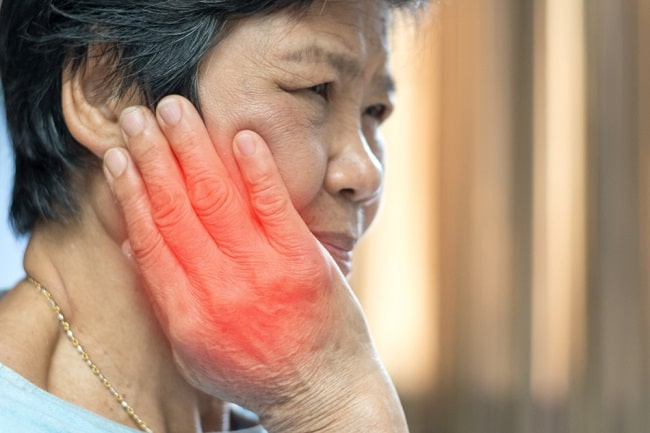
Exploring The Impact of TMD on Oral Health And Well-being
Temporomandibular Disorder (TMD) is a complex condition that affects the temporomandibular joint (TMJ), which connects the jawbone to the skull. While often viewed as a localized issue, TMD can have far-reaching consequences for overall health. The experts at a Houston, TX dental practice stress the need for early diagnosis and prompt treatment to minimize the prevalence of unwanted complications.
In this article, we’ll explore the ways TMD can impact your overall well-being and possible treatment options.
What is TMD?
Temporomandibular Disorder (TMD) is a complex and multifaceted condition characterized by dysfunction and pain in the temporomandibular joint (TMJ), which connects the jawbone to the skull. The TMJ is a vital joint that enables us to chew, speak, and yawn, making it a crucial component of our daily lives. TMD occurs when the TMJ and surrounding muscles, tendons, and ligaments become inflamed, irritated, or damaged, leading to a range of symptoms including pain, clicking, popping, or locking of the jaw, limited mobility, and tenderness in the face, neck, and shoulders. TMD can be acute or chronic, and its causes are varied, including jaw injuries, arthritis, teeth grinding and clenching, poor bite alignment, and stress, making it a challenging condition to diagnose and treat.
How does TMD impact your health?
TMD, if not treated on time, can have adverse consequences and impact your overall health in the following ways:
Chronic Pain and Inflammation
TMD is characterized by chronic pain and inflammation in the TMJ, which can radiate to the face, neck, and shoulders. This pain can lead to:
- Headaches and migraines
- Earaches and hearing loss
- Difficulty sleeping
- Fatigue and irritability
Dental Problems
TMD can cause teeth grinding and clenching, leading to:
- Tooth wear and tear
- Cracks and chips
- Sensitivity and pain
- Gum recession and tooth loss
Nutritional Deficiencies
TMD can make eating and chewing difficult, leading to:
- Malnutrition
- Vitamin deficiencies
- Digestive issues
Emotional and Psychological Impact
TMD can contribute to:
- Anxiety and depression
- Stress and tension
- Low self-esteem
- Difficulty concentrating
Systemic Inflammation
TMD-related inflammation can spread to other parts of the body, increasing the risk of:
- Heart disease
- Diabetes
- Arthritis
- Fibromyalgia
Sleep Disturbances
TMD can disrupt sleep patterns, leading to:
- Insomnia
- Sleep apnea
- Fatigue
- Daytime drowsiness
Hormonal Imbalance
TMD can affect hormone regulation, leading to:
- Thyroid issues
- Adrenal fatigue
- Hormonal imbalances
Posture and Alignment
TMD can impact posture and alignment, leading to:
- Back and neck pain
- Sciatica
- Poor posture
Digestive Issues
TMD can affect digestion, leading to:
- IBS (Irritable Bowel Syndrome)
- Acid reflux
- Bloating and gas
Overall Quality of Life
TMD can significantly impact daily life, making everyday activities challenging and affecting overall well-being.
What are the possible treatment options for TMD?
Treatment options for Temporomandibular Disorder (TMD) vary depending on the severity and underlying causes of the condition. Here are some common treatment options:
Conservative Treatments:
- Pain relief medications
- Jaw exercises and stretches
- Soft food diet
- Heat or cold packs
- Stress management techniques
Dental Treatments:
- Occlusal adjustment (bite adjustment)
- Dental restorations (fillings, crowns)
- Orthodontic treatment (braces)
- Mouthguards or splints
Physical Therapy:
- Jaw mobilization
- Soft tissue mobilization
- Posture correction
- Exercise programs
Alternative Therapies:
- Acupuncture
- Massage therapy
- Chiropractic care
- Relaxation techniques (meditation, yoga)
Surgical Options:
- Arthroscopy (minimally invasive surgery)
- Open joint surgery
- TMJ replacement
Other Options:
- Botox injections
- Trigger point injections
- Radiofrequency ablation
Wrapping up
In conclusion, Temporomandibular Disorder (TMD) is a complex condition that extends far beyond the jaw and facial region, having a profound impact on overall health and well-being. It is crucial to address TMD as a holistic condition, incorporating dental, medical, and alternative therapies to restore balance and harmony to the entire body. By doing so, you can improve not only the lives of those affected by TMD but also your overall quality of life, empowering you to live healthier, happier, and more fulfilling lives.



